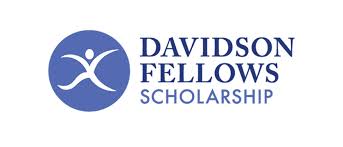In today’s world, higher education can be expensive, but women have access to a variety of financial resources to help cover tuition costs. College grants for women are a crucial form of financial aid, offering women the opportunity to pursue their education without the burden of repayment. This article will provide an overview of the different types of grants available for women, how to find them, and how to successfully secure them.
What Are College Grants for Women?
College grants are forms of financial aid that do not require repayment. They are typically awarded based on factors such as need, merit, or specific demographic characteristics, including gender. College grants for women are designed to address the historical underrepresentation of women in higher education, as well as to encourage their participation in various fields, including STEM (Science, Technology, Engineering, and Math), business, and healthcare.
Unlike scholarships that may be merit-based or awarded for extracurricular achievements, college grants often focus more on financial need, providing funds to help women who might not otherwise be able to afford a college education.
Types of College Grants for Women
- Federal Grants The federal government offers several grant programs for women, primarily focusing on financial need. Some of the most popular options include:
- Pell Grant: This is the largest need-based federal grant. Women who demonstrate financial need can qualify for Pell Grants, which can provide up to $6,495 (as of the 2024-2025 academic year). The amount depends on factors like financial need, cost of attendance, and enrollment status.
- Federal Supplemental Educational Opportunity Grant (FSEOG): This is a need-based federal grant designed for students with exceptional financial need. Women who are eligible for Pell Grants may also qualify for FSEOG.
- State Grants Many states offer their own grant programs to assist women attending college in-state. These grants may vary by state but generally focus on helping residents pursue higher education. Examples of state-based programs include the Cal Grant in California and the TPEG (Texas Public Education Grant) in Texas.
- Private Grants and Scholarships for Women Numerous organizations and foundations offer private grants to women pursuing college degrees. These can be merit-based, need-based, or for women in specific fields of study. Some examples include:
- The American Association of University Women (AAUW): The AAUW offers a variety of fellowships and grants for women pursuing graduate or postdoctoral studies, as well as undergraduate women pursuing careers in nontraditional fields.
- The Jeannette Rankin Women’s Scholarship Fund: This grant provides financial assistance to low-income women aged 35 or older who are pursuing a technical or undergraduate degree.
- The Patsy Takemoto Mink Education Foundation: This organization offers education grants for low-income women who are 17 years or older, have dependents, and are pursuing higher education.
- Grants for Specific Fields Certain industries and academic fields offer grants for women pursuing education in those areas. For example:
- STEM Grants: Programs like the Women Techmakers Scholars Program or NCWIT Aspirations in Computing (AiC) offer funding for women pursuing degrees in science, technology, engineering, and math.
- Health & Medicine: Women pursuing degrees in nursing, medicine, or healthcare may qualify for specialized grants like the Nursing Scholarship Program from the U.S. Department of Health and Human Services.
How to Secure College Grants for Women
Securing college grants can seem like a complicated process, but with the right approach, you can maximize your chances of receiving funding. Here’s a step-by-step guide to help you navigate the process:
1. Complete the FAFSA
The first step in securing any type of federal or state financial aid is to complete the Free Application for Federal Student Aid (FAFSA). The FAFSA helps determine your eligibility for federal grants, state grants, and many private scholarships. It’s essential to complete the FAFSA as soon as possible after it opens on October 1 each year, as some grants are awarded on a first-come, first-served basis.
2. Research Available Grants
Start by researching the grants available to women. Look for federal, state, and private options. Some grants may be specific to your location, field of study, or personal background. Websites such as Grants.gov, Scholarships.com, and the Department of Education’s website are excellent resources for finding available grants.
3. Check Eligibility Criteria
Once you’ve identified potential grants, carefully read the eligibility criteria. Some grants may require you to be enrolled in a specific program, maintain a certain GPA, or meet other criteria such as age or field of study. Pay close attention to application deadlines and ensure you have all the necessary documents.
4. Prepare a Strong Application
For most grants, you will need to submit an application. Some grants may require essays, personal statements, or letters of recommendation. To strengthen your application:
- Write a compelling essay: Highlight why you are a good candidate for the grant, your academic and career goals, and how the grant will help you achieve them.
- Provide strong references: Choose individuals who can speak to your academic abilities, character, and dedication. Letters of recommendation from teachers, mentors, or employers can make a big difference.
- Follow instructions: Carefully follow all instructions and ensure that you submit all required documents by the deadline.
5. Apply to Multiple Grants
Don’t limit yourself to one or two applications. Apply to as many relevant grants as possible to increase your chances of receiving financial aid. Keep track of your applications and ensure you meet all deadlines.
6. Stay Organized and Be Persistent
The process of securing grants can take time, so stay organized. Keep a calendar of deadlines, and set aside time to work on applications. Don’t be discouraged if you don’t win a grant right away—there are many opportunities available, and persistence pays off.
Conclusion
College grants for women are a valuable resource that can significantly reduce the financial burden of higher education. By researching available grants, understanding eligibility criteria, and submitting strong applications, women can access financial aid to pursue their academic and career goals. Whether you’re applying for federal, state, or private grants, it’s essential to stay organized and persistent throughout the process. With determination and the right resources, you can secure the funding you need to succeed in your college education.
All the best!



